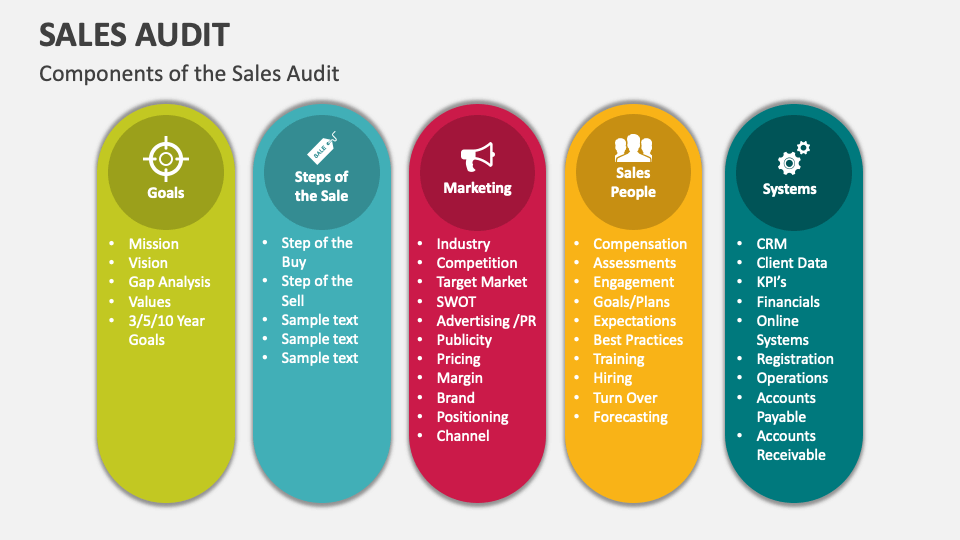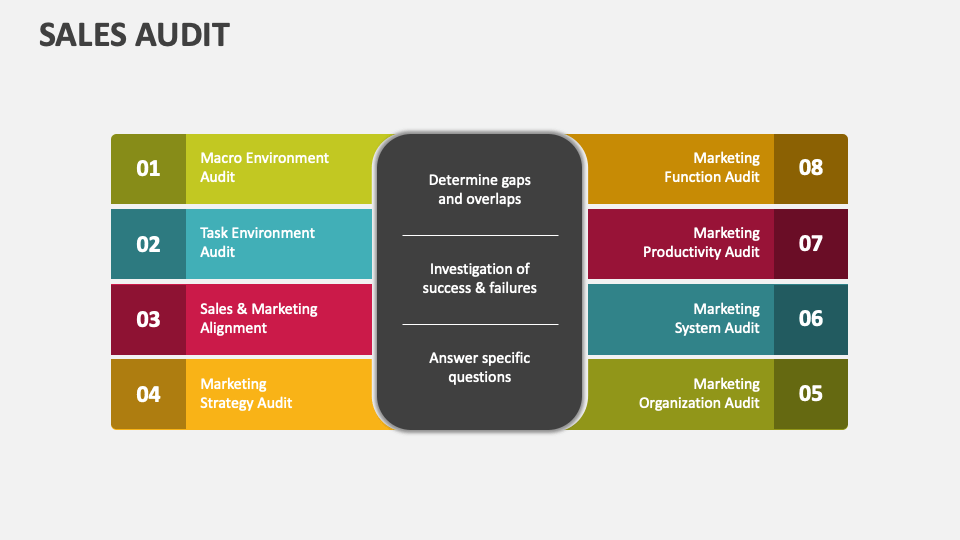Sales audit is a critical process that every business should conduct regularly to evaluate their sales performance and identify areas for improvement. It provides valuable insights into the effectiveness of your sales strategies, team performance, and overall sales operations. By understanding the importance of sales audits, businesses can make informed decisions to enhance their revenue growth and competitiveness in the market.
In today's fast-paced business environment, companies face increasing pressure to adapt and optimize their sales processes to stay ahead of the competition. A sales audit serves as an essential tool to achieve this goal by offering a detailed examination of sales activities, processes, and outcomes. This allows businesses to uncover hidden inefficiencies, address weaknesses, and capitalize on strengths.
This article will provide an in-depth exploration of sales audits, including their purpose, benefits, and key components. Additionally, we will examine the step-by-step process for conducting a successful sales audit, highlight best practices, and share expert tips to ensure your business gains maximum value from this critical exercise.
Read also:Annette Haven The Iconic Journey Of A Pornography Legend
Table of Contents
- What is Sales Audit?
- Importance of Sales Audit
- Types of Sales Audits
- Key Components of a Sales Audit
- Conducting a Sales Audit
- Common Challenges in Sales Audits
- Best Practices for Sales Audits
- Tools for Sales Audit
- Case Studies of Successful Sales Audits
- Conclusion
What is Sales Audit?
A sales audit is a systematic evaluation of a company’s sales processes, strategies, and performance. It involves analyzing various aspects of the sales function, including sales pipelines, customer relationships, sales techniques, and team effectiveness. The primary goal of a sales audit is to identify gaps, inefficiencies, and opportunities for improvement within the sales organization.
Definition and Scope
The scope of a sales audit typically includes reviewing sales data, assessing sales methodologies, evaluating sales training programs, and examining customer feedback. By taking a holistic approach, businesses can gain a comprehensive understanding of their sales operations and make data-driven decisions to enhance performance.
Why Conduct a Sales Audit?
Conducting a sales audit is essential for businesses that want to remain competitive and achieve sustainable growth. It helps organizations align their sales strategies with market demands, improve team productivity, and optimize resource allocation. Furthermore, regular sales audits can prevent costly mistakes and ensure long-term success.
Importance of Sales Audit
In today’s competitive business landscape, understanding the importance of sales audits can make a significant difference in your company’s success. A well-executed sales audit provides actionable insights that enable businesses to fine-tune their operations and achieve better results.
Read also:Kemono Su A Comprehensive Guide To Understanding And Exploring The Phenomenon
Boosting Sales Performance
One of the primary benefits of a sales audit is its ability to identify areas where sales performance can be improved. By analyzing sales data and customer interactions, businesses can pinpoint specific issues and develop targeted solutions to address them.
Enhancing Customer Satisfaction
Sales audits also play a crucial role in improving customer satisfaction. By evaluating customer feedback and analyzing sales interactions, companies can ensure that their sales teams are meeting customer expectations and delivering value.
Types of Sales Audits
There are several types of sales audits that businesses can conduct, depending on their specific needs and goals. These include:
- Compliance Sales Audit: Ensures that sales practices comply with legal and regulatory requirements.
- Operational Sales Audit: Focuses on evaluating the efficiency and effectiveness of sales processes and systems.
- Strategic Sales Audit: Assesses the alignment of sales strategies with business objectives and market trends.
- Performance Sales Audit: Analyzes the performance of sales teams and identifies areas for improvement.
Each type of sales audit serves a unique purpose and can provide valuable insights into different aspects of the sales function.
Key Components of a Sales Audit
A successful sales audit involves examining several key components to ensure a thorough evaluation of the sales function. These components include:
Sales Strategy
Assessing the effectiveness of your sales strategy is critical to ensuring alignment with business goals and market demands. This involves reviewing target markets, pricing strategies, and sales objectives.
Sales Team Performance
Evaluating the performance of your sales team is another essential component of a sales audit. This includes analyzing individual and team performance metrics, such as conversion rates, sales volume, and customer satisfaction scores.
Conducting a Sales Audit
To conduct a successful sales audit, businesses should follow a structured approach that includes the following steps:
Step 1: Define Objectives
Clearly define the objectives of the sales audit to ensure focus and direction. This involves identifying key areas of concern and setting measurable goals for improvement.
Step 2: Gather Data
Collect relevant data from various sources, including sales reports, customer feedback, and performance metrics. Ensure that the data is accurate and up-to-date to provide a reliable basis for analysis.
Step 3: Analyze Findings
Once data has been gathered, analyze the findings to identify trends, patterns, and areas for improvement. Use this information to develop actionable recommendations for enhancing sales performance.
Common Challenges in Sales Audits
Despite their benefits, sales audits can present several challenges that businesses must overcome to ensure success. These challenges include:
- Data Quality: Poor-quality data can lead to inaccurate conclusions and ineffective recommendations.
- Resistance to Change: Some team members may resist changes resulting from the audit, making implementation difficult.
- Resource Constraints: Conducting a thorough sales audit may require significant time and resources, which can be a challenge for some organizations.
Addressing these challenges requires careful planning, effective communication, and a commitment to continuous improvement.
Best Practices for Sales Audits
To maximize the value of your sales audit, consider adopting the following best practices:
Involve Key Stakeholders
Engage key stakeholders, including sales managers, team members, and senior leadership, in the audit process to ensure diverse perspectives and buy-in.
Use Technology
Leverage technology and tools to streamline the audit process and enhance data analysis capabilities. This can lead to more accurate and actionable insights.
Tools for Sales Audit
Several tools and software solutions can assist businesses in conducting effective sales audits. Some popular options include:
- CRM Systems: Customer relationship management tools can provide valuable data on sales performance and customer interactions.
- Data Analytics Platforms: Tools like Tableau and Google Analytics can help businesses analyze sales data and identify trends.
- Survey Software: Platforms like SurveyMonkey and Google Forms can be used to gather customer feedback and assess satisfaction levels.
Utilizing these tools can significantly enhance the quality and effectiveness of your sales audit.
Case Studies of Successful Sales Audits
Several companies have achieved remarkable success through the implementation of sales audits. For example:
Case Study 1: Company A
Company A conducted a comprehensive sales audit that revealed inefficiencies in their sales processes. By addressing these issues, they were able to increase their sales revenue by 20% within six months.
Case Study 2: Company B
Company B used a sales audit to identify gaps in their customer service delivery. By implementing recommended improvements, they improved customer satisfaction scores by 15% and reduced churn rates.
Conclusion
In conclusion, sales audits are an indispensable tool for businesses seeking to optimize their sales performance and achieve long-term success. By conducting regular audits, companies can identify areas for improvement, enhance customer satisfaction, and drive revenue growth.
We encourage you to take action by initiating a sales audit in your organization. Share your thoughts and experiences in the comments below, and don’t forget to explore other informative articles on our website. Together, let’s elevate your business to new heights!


